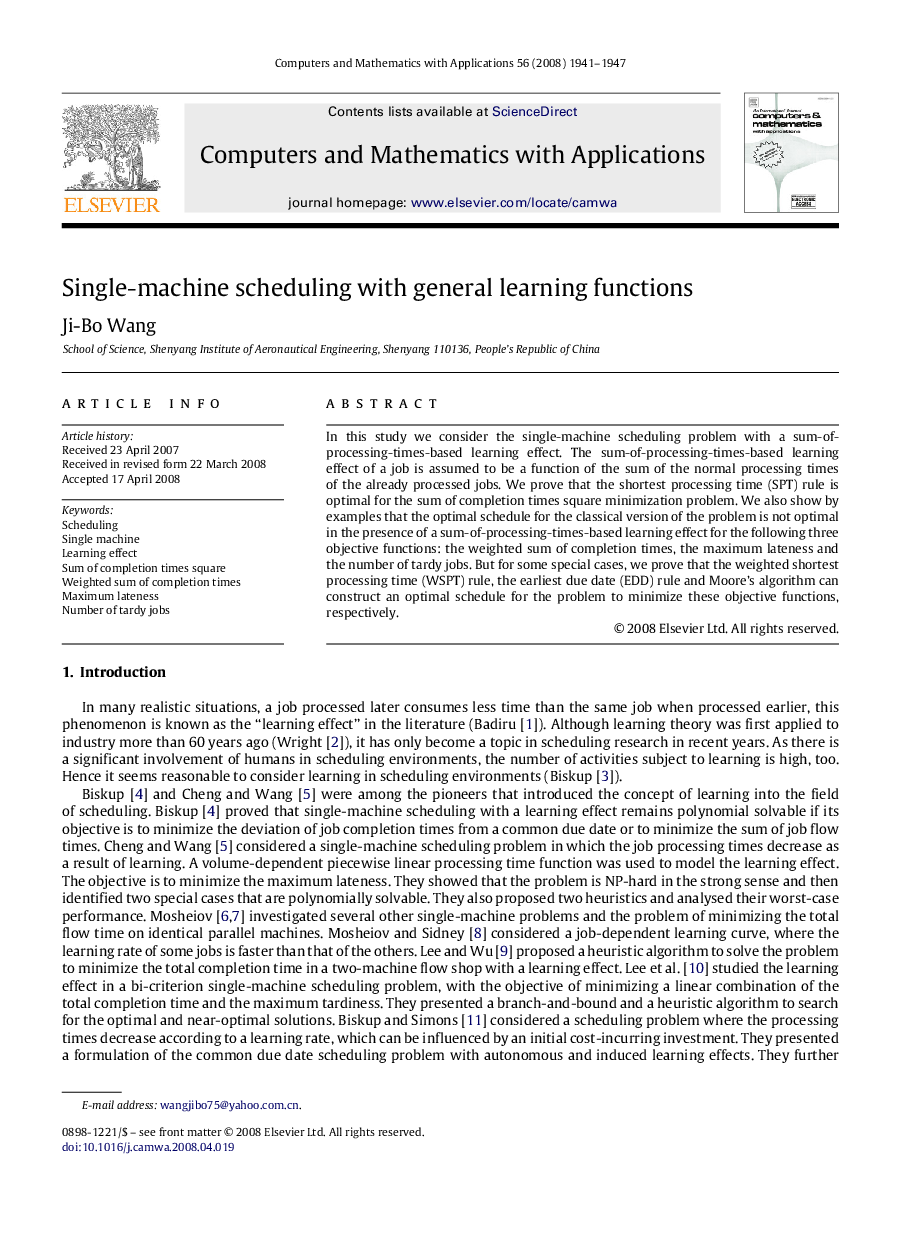| Article ID | Journal | Published Year | Pages | File Type |
|---|---|---|---|---|
| 472328 | Computers & Mathematics with Applications | 2008 | 7 Pages |
In this study we consider the single-machine scheduling problem with a sum-of-processing-times-based learning effect. The sum-of-processing-times-based learning effect of a job is assumed to be a function of the sum of the normal processing times of the already processed jobs. We prove that the shortest processing time (SPT) rule is optimal for the sum of completion times square minimization problem. We also show by examples that the optimal schedule for the classical version of the problem is not optimal in the presence of a sum-of-processing-times-based learning effect for the following three objective functions: the weighted sum of completion times, the maximum lateness and the number of tardy jobs. But for some special cases, we prove that the weighted shortest processing time (WSPT) rule, the earliest due date (EDD) rule and Moore’s algorithm can construct an optimal schedule for the problem to minimize these objective functions, respectively.
